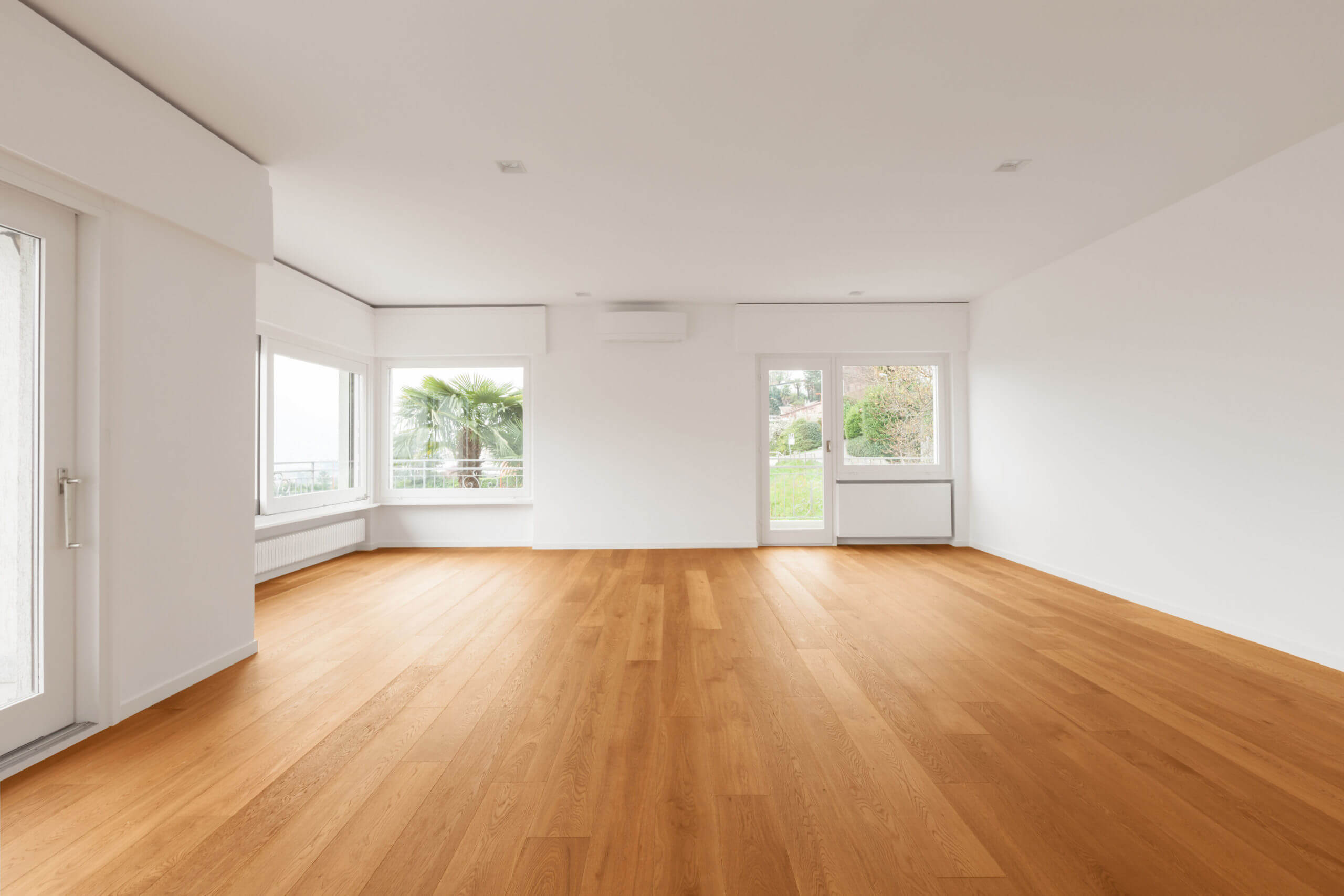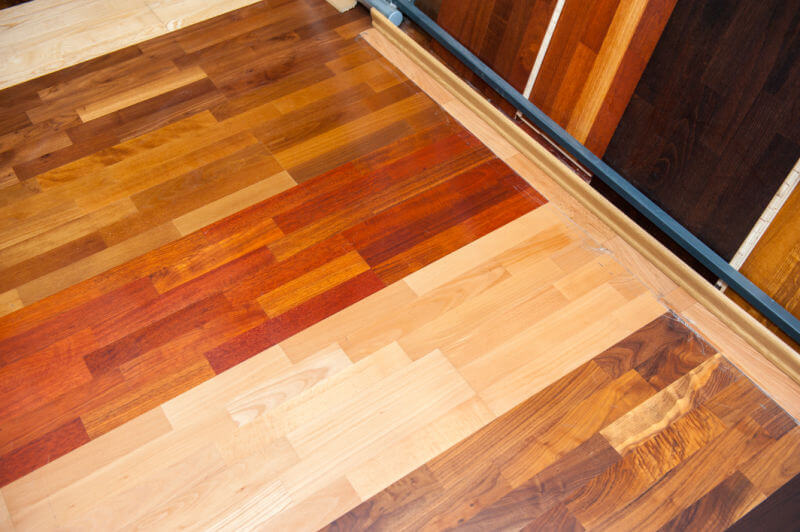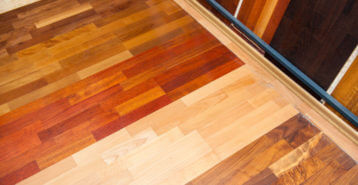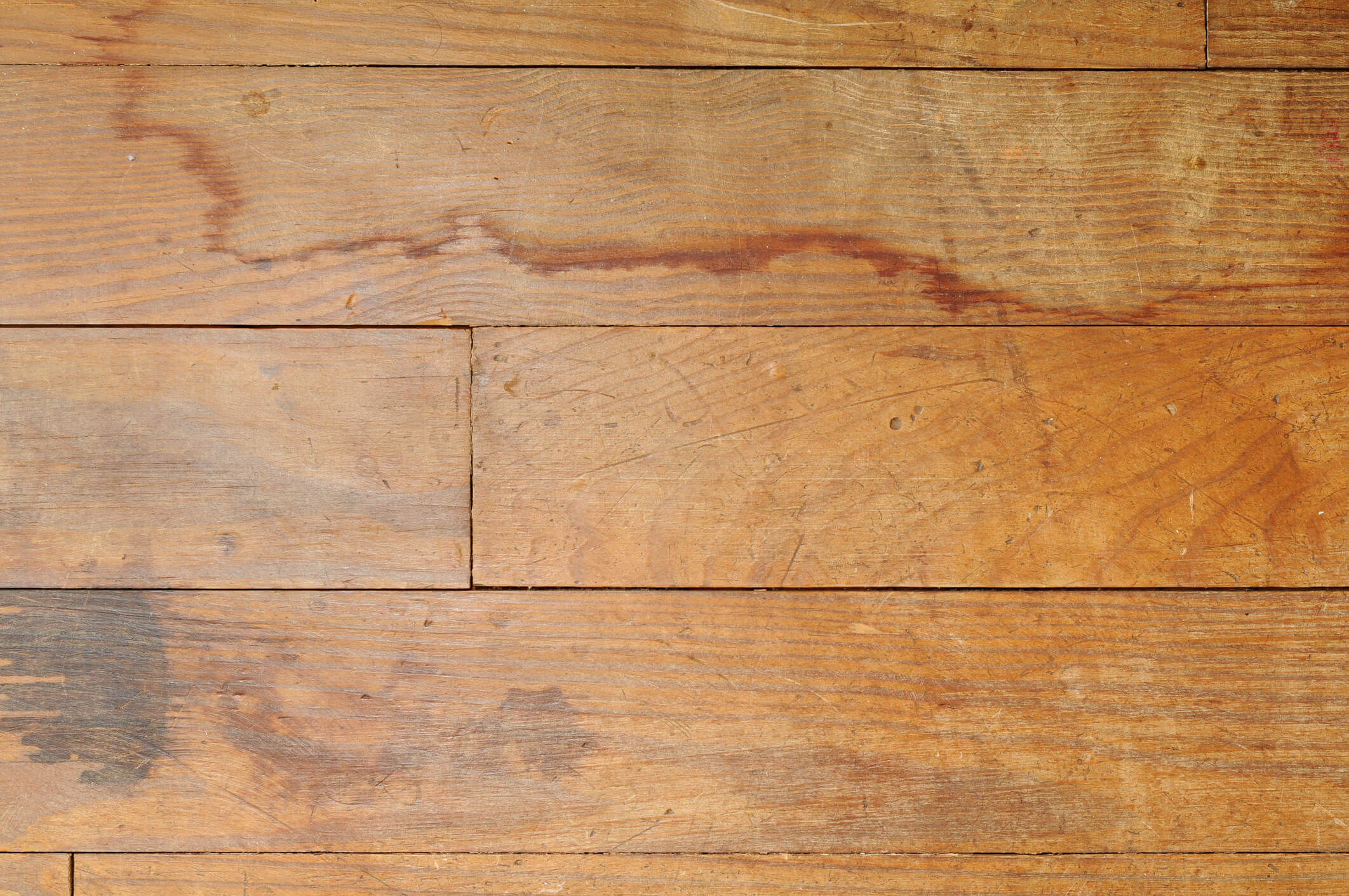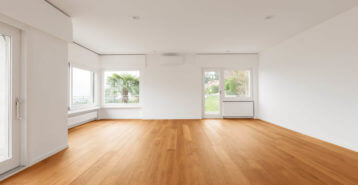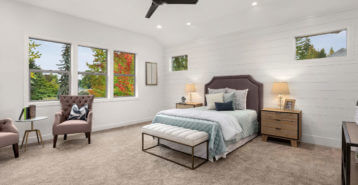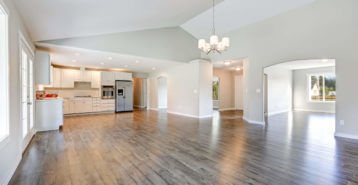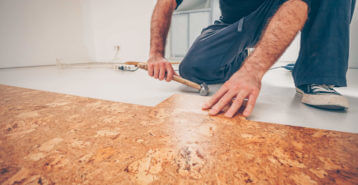How Much Does It Cost to Refinish Hardwood Floors?
Understanding the cost to refinish hardwood floors is essential for homeowners aiming to restore their floors’ beauty and durability. While hardwood floors, such as resilient maple, can last over 50 years, wear and tear eventually necessitate refinishing to maintain their original appeal. Addressing scratches and damage early prevents worsening conditions and helps ensure your floors retain their timeless elegance.
Refinishing hardwood floors can dramatically enhance their aesthetic appeal, extend their longevity, and even boost your property’s value. On average, homeowners can expect to pay between $3 to $8 per square foot to refinish their hardwood floors. This cost typically includes both labor and materials. For an average-sized room of about 200 to 250 square feet, the total refinishing cost would likely fall within the range of $600 to $2,000.
However, if the hardwood floors are severely damaged or require special treatments or repairs before the refinishing process can begin, these costs can rise. For instance, if the floors have deep scratches, dents, or warps, they may need more intensive sanding or even individual board replacement, which will add to the total cost. Also, if your floors have been stained or painted, additional labor and materials may be needed to remove these before the refinishing process can begin.
Key Factors That Impact Hardwood Flooring Refinishing Costs
The cost to refinish your hardwood floors will vary depending on a number of factors, including total square footage, extent of the damage to your existing flooring, desired outcome, and contractor labor rates in your area.
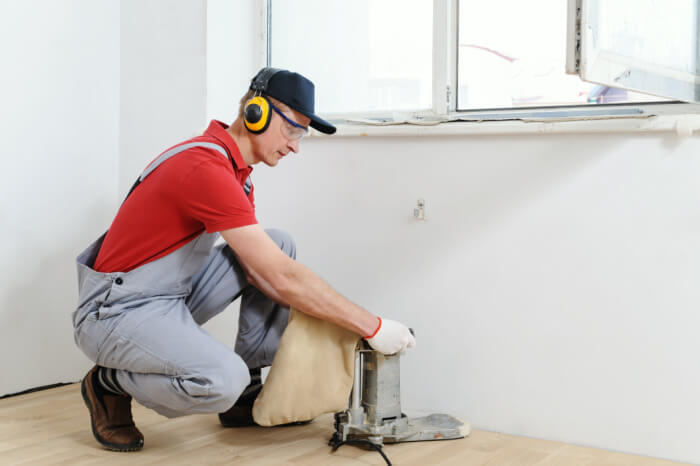
Room Size
The total square footage of the hardwood floor to be refinished is one of the most significant factors determining the cost. Larger spaces will require more materials and labor, and therefore will cost more to refinish.
Floor Condition
The current state of your floors can greatly impact the cost of refinishing. If your hardwood floors have deep scratches, dents, stains, or water damage, additional work will be required to restore them before the refinishing process can even begin. This might involve intensive sanding, board replacement, or other repair work.
Type of Hardwood
Different types of wood may require different refinishing methods or materials. Some hardwoods are harder and may take longer to sand, while others may require special finishes. Additionally, some exotic or rare wood types may need specialized care or treatments that can add to the cost.
Type of Finish
The type of finish you choose can influence the final cost. Finishing can cost anywhere between $1.50 and $5 per square foot depending on the type you choose.
There are many different types of finishes available, ranging from oil-based polyurethane, which tends to be less expensive at around $1.50 to $3 per square foot, but requires a longer drying time. Water-based polyurethane dries faster but is typically more expensive at around $2 to $4 per square foot.
Sanding and Staining
The cost of sanding typically falls between $1.50 and $3 per square foot. This price includes labor and materials, but it can vary based on factors such as the condition of the floors and the region in which you live.
Staining is the process of applying a tint to the wood to alter its color before the finish is applied. The cost for this service is usually around $1 to $2 per square foot. However, this cost can also vary based on the complexity of the job and the specific type of stain chosen.
Job Complexity
If your project involves complex elements such as detailed edge work, intricate patterns, or staining, the cost will likely be higher. Also, the presence of obstacles like baseboards, radiators, or built-in furniture can add complexity to the job and therefore increase the cost.
Labor Costs and Geographical Location
Geographical location can also affect the cost to refinish hardwood floors. Labor rates vary significantly across different regions, so you might pay more if you live in an area with a high cost of living. Contractors may charge between $3 and $5 a square foot for installation and labor. Expect to pay more if your flooring contractor has to repair the underlayment and floor joists.
Additional Costs
Some projects may require extra services like removing and reinstalling baseboards or moving furniture out of the room. These tasks will add to the overall cost of the hardwood flooring project.
Refinishing Costs by Type of Hardwood
The type of hardwood you have can significantly impact the cost to refinish your floors. Certain types of wood are harder and denser, making them more challenging to sand and refinish. Others have unique grain patterns that might require more specialized techniques or products to bring out their best features.
Let’s break down some typical hardwood flooring types:
- Oak: On average, it might cost between $3.50 and $5 per square foot to refinish oak floors. This includes the cost of sanding, staining, and sealing.
- Maple: Because maple is harder and denser, it can cost a bit more to refinish, generally in the range of $4 to $6 per square foot.
- Walnut: The cost of refinishing walnut floors can vary depending on the specific type of walnut and the desired finish. In general, you can expect to pay between $4.50 and $6.50 per square foot.
- Exotic woods: Exotic hardwoods can be quite expensive to refinish due to their hardness and the special techniques or products required. Costs could range anywhere from $5 to $8 per square foot.
- Engineered Hardwood: The cost to refinish engineered hardwood floors is largely dependent on the thickness of the veneer. If the veneer is thick enough to be sanded and refinished, you can expect to pay between $3.50 and $5 per square foot. However, if the veneer is too thin, refinishing may not be an option, and you might need to replace the flooring instead.
Why Refinish Hardwood Floors?
Although hardwood flooring is quite resilient, it can be damaged in a number of ways. The flooring industry rates flooring’s ability to withstand damage from denting, scratching and wear-and-tear using the Janka test. This test determines the amount of force necessary to embed a .444-inch steel ball halfway into the wood. Hickory, maple, oak and ash rate well above the industry standard median for hardness, while birch, pine, black cherry and fir rate below it.
Generally speaking, the harder a hardwood material is, the less likely it is to damage and require repair. Softer wood floors tend to withstand many forms of wear and tear over the years – including scratches, fading, water damage, dents, and squeaking. These types of floors tend to require refinishing more often than harder wood floors.
Refinishing hardwood floors is often a smart move towards maintaining your home’s value for a number of reasons.
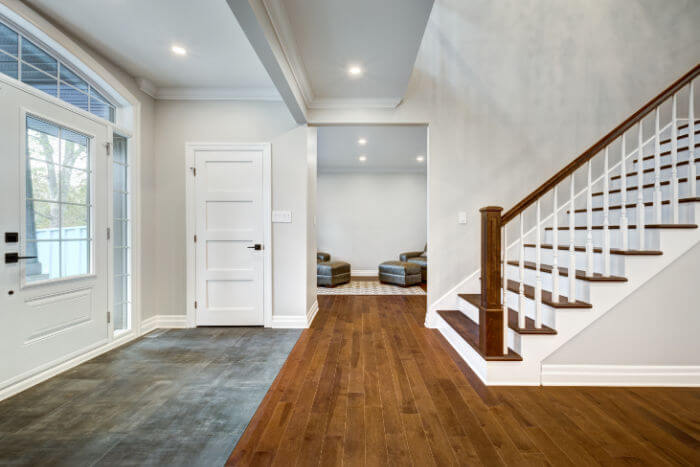
Aesthetic Appeal
Over time, hardwood floors can lose their shine and develop scratches, dents, or scuffs. Refinishing them can restore their original beauty and luster, enhancing the overall look of your space.
Longevity
Hardwood floors are a significant investment. Regular refinishing can significantly extend their lifespan, allowing you to enjoy your floors for many years, and even decades.
Damage Prevention
Refinishing also helps to fix minor surface-level damages before they get worse. It prevents deeper scratches or dents from attracting moisture, which could lead to significant issues like warping or rotting wood.
Value Addition
Well-maintained hardwood floors add value to your property. If you’re considering selling your home, refinishing your floors can increase your home’s market appeal and could even boost its resale value.
Cleanliness
Refinished floors are easier to clean as they have a smooth, sealed surface. This prevents dirt, dust, or allergens from getting trapped in the wood grain, contributing to a healthier living environment.
Cost-Effective
Refinishing is more cost-effective compared to replacing hardwood floors entirely. While there is a cost to refinish hardwood floors, it’s usually less expensive than a full replacement.
Hardwood Floor Refinishing vs. Replacement
In most instances, refinishing your hardwood floors will be a much more affordable option than totally replacing them.
To replace hardwood floors, you could expect to pay $6 to $12 per square foot as of 2026. Most homeowners pay an average of around $4,500, but costs could vary between $2,500 and $7,300 depending on what species of wood you choose. For instance, designer hardwoods like Brazilian cherry come with a high price, but also will likely outlast your homeownership and boost your home’s resale value. Lower-cost hardwood flooring like pine and fir will be cost-effective but offer a lower return on investment.
Other factors that affect total cost can include plank style, width, thickness, color and pattern.
When to Replace Hardwood Floors
That said, there are several scenarios that likely would merit a total flooring replacement:
- Major damage. Extensive water damage across a large surface area, or damage to the subfloor or joists, could mean it’s time to start fresh with a total flooring replacement. Also, if the flooring shows extensive cupping, warping, stains or damage from termites, you might need to install a completely new hardwood floor.
- Severe wear and tear. Natural hardwood flooring can be sanded and refinished many times. There is a limit, though, especially for engineered wood flooring that uses a real wood veneer atop a cheaper base material such as plywood. If your flooring has already been resurfaced many times and still shows a great deal of wear, you might need new planking.
- Upgrading to a new look. Your existing hardwood flooring may still have life left in it. But if it’s in a style that’s not complementary to your tastes, you might want to change it out for a different aesthetic.
Discuss your particular situation with a licensed flooring contractor to determine whether a hardwood floor repair or replacement is the best course of action.
Benefits of New Hardwood Floors
There are a few benefits of installing brand new hardwood flooring that are worth noting. When replacing, you can:
- Choose a different species that has a better hardness on the Janka scale.
- Change the orientation of the flooring. Running the flooring in certain directions, such as horizontally or vertically, can make a room seem larger.
- Add artistic finishes and patterns for a truly unique aesthetic.
- Modernize your flooring by choosing the extra-wide planks that are common in residential applications.
Ensuring Longevity: Hardwood Floor Maintenance
To ensure the longevity of your hardwood floors and minimize the cost to refinish hardwood floors in the long run, keeping them clean is paramount. Regular dusting with a microfiber mop or vacuuming can protect your hardwood floors from damage and extend their lifespan. An occasional mop to eliminate built-up dirt is also advisable, ensuring that the mop head is thoroughly wrung out before use to avoid water pooling.
Hiring a Hardwood Refinishing Professional
Refinishing hardwood flooring is a big job that is best left to a professional flooring contractor, unless you have ample experience with stains, sealants and sanders. Professionals can accurately assess the scope of the job, guide you in making the right decisions, and ensure your flooring repair or refinishing job is done correctly. Remember, investing in refinishing hardwood floors not only brings back their original charm but can also increase your home’s overall value.
Compare top-rated flooring pros in your area.
Read real homeowner reviews, explore qualifications, and view promotions. Modernize makes it easy to browse professionals and find one that will be perfect for your project.
